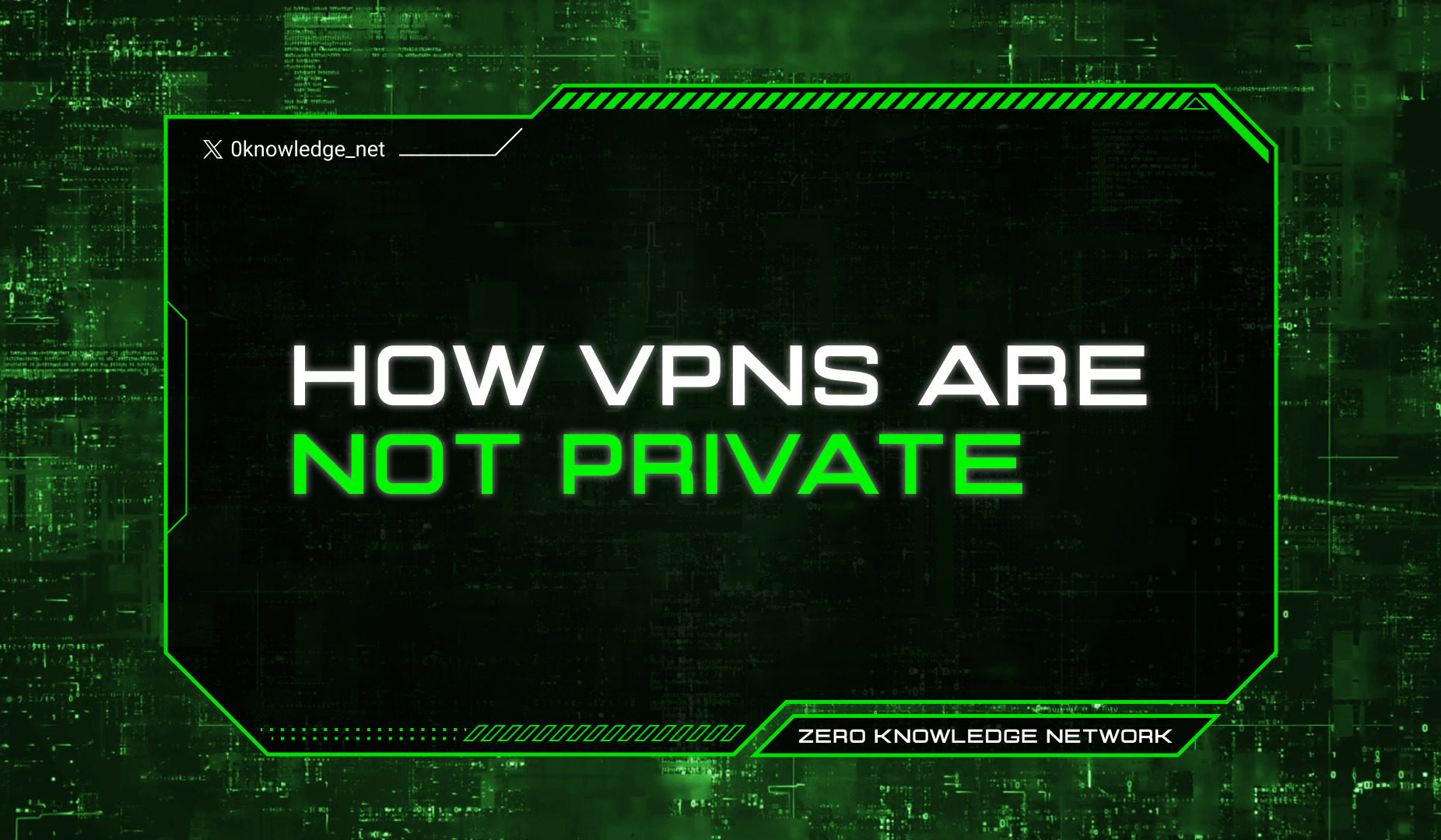How VPNs Are Not Private

In today's digital age, privacy is a significant concern for individuals and organizations alike. The 0 Knowledge Network (0KN) is at the forefront of addressing these concerns by offering a decentralized privacy network designed to ensure truly metadata-private communications. In this article, we explore why Virtual Private Networks (VPNs), despite their popularity, usually provide only weak privacy and how 0KN's approach, leveraging mixnets and other advanced technologies, offers a superior solution.
What is a VPN?
A Virtual Private Network (VPN) is a technology initially developed to allow secure access to private resources over a public network, such as connecting to office servers from a remote location. By creating a secure, encrypted tunnel between your device and a remote server, VPNs protect your data from being intercepted as it travels over the internet. Over time, VPNs have evolved to help users access geo-locked services and mask their online identity by routing internet traffic through an intermediary server. However, despite their intended purpose, common VPN software has multiple vulnerabilities that can compromise the privacy of connections, especially against well-resourced, targeted attacks.
VPNs Are Not Private?
There's a lot of marketing hype regarding VPNs and what they can do for your privacy. However, VPNs usually provide only a very weak type of privacy. Nowadays, various VPN companies offer features such as choosing your VPN location or incorporating mixnet-based decoy traffic. Despite these additional features, VPNs fundamentally remain inadequate in terms of privacy, especially when compared to anonymous communications networks.
From the perspective of a mixnet designer, VPNs don't offer any real privacy. A mixnet engineer is constantly considering the Global Passive Adversary threat model, recognizing that powerful entities can easily perform statistical correlations to determine which incoming VPN connection corresponds to which outbound VPN connection. VPNs, after all, form a one-hop network, and statistical analysis is both cheap and easy to perform for such adversaries.
The Responsibility of VPN Providers
VPN providers have a significant responsibility to deliver the privacy they claim to offer. Users trust these services with sensitive information, including personal and payment details, which can be linked to their IP addresses. It is crucial that VPN providers not only avoid logging or sharing this data but also implement robust security measures to protect servers from potential breaches. Failing to do so not only undermines user privacy but also exposes them to risks that the VPN is supposed to mitigate.
The Limitations of VPNs
VPNs are often touted as a simple solution for privacy, but their architecture is inherently flawed when facing sophisticated threats. Even with features like location masking and mixnet integration, VPNs cannot hide from the statistical analysis performed by a global passive adversary. This is because VPNs operate as a single hop, making it easier for adversaries to correlate incoming and outgoing traffic. To more fully understand the risks involved, read up on the vulnerabilities in VPNs.
The Importance of Strong Anonymity
In contrast to VPNs, protocols focused on "strong anonymity" are designed to withstand even the most advanced forms of traffic analysis. These protocols, which are central to the 0KN approach, offer robust privacy features for specific use cases. However, strong anonymity protocols involve trade-offs in terms of bandwidth and latency. As a result, the use cases for strong anonymity protocols differ significantly from those of general-purpose internet protocols, as well as from networks like I2P, Dandelion, and Tor, which offer "weak anonymity."
Conclusion
While VPNs offer a basic level of privacy, they fall short when faced with advanced network analysis. The 0 Knowledge Network, with its emphasis on decentralized, metadata-private communications, provides a more robust solution for use cases that demand the highest levels of privacy and security in digital interactions. As concerns about digital privacy continue to grow, 0KN's innovative approach represents the future of secure communications, enabling individuals and organizations to operate safely in the digital era.
